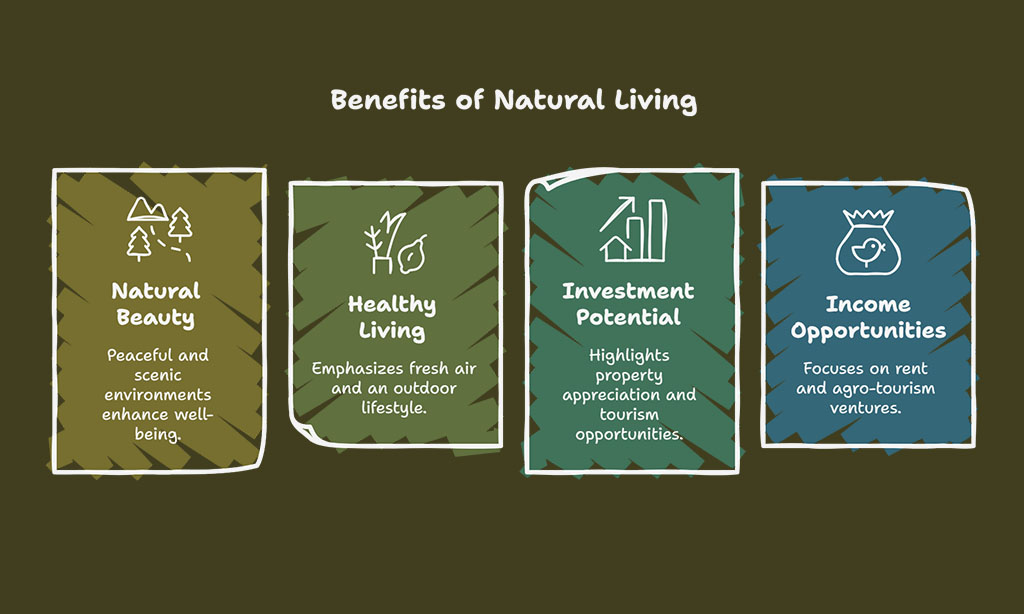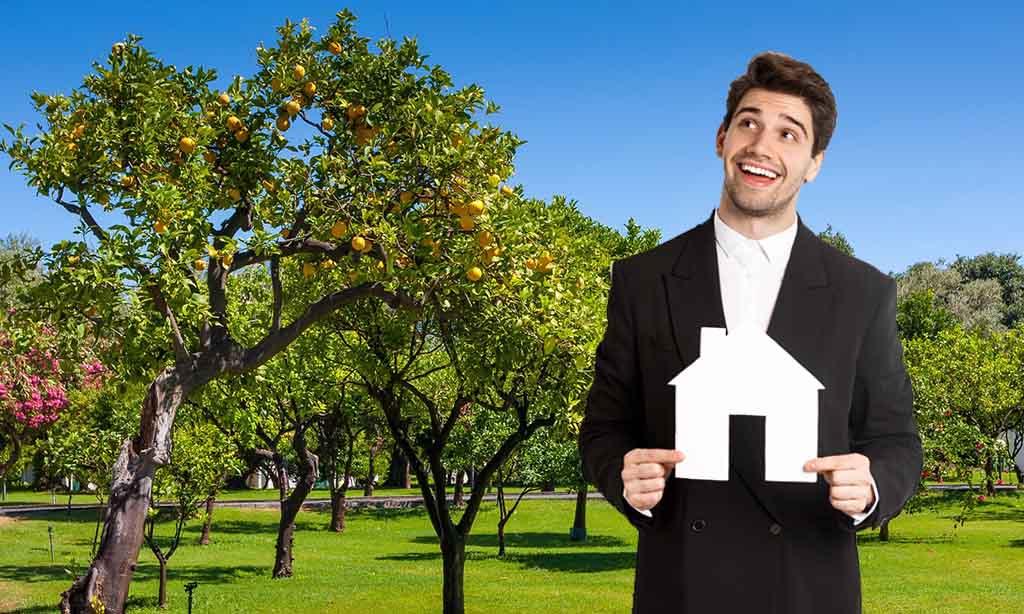Buying a property with a lemon grove in Italy is more than just an investment. It’s a chance to live the Mediterranean dream. Imagine waking up to the fresh scent of lemons, surrounded by rolling hills and sun-soaked landscapes. Whether you’re searching for a peaceful retreat, an eco-friendly lifestyle, or a smart business opportunity, owning a lemon grove property in Italy offers it all.
From the famous Amalfi Coast to the rustic beauty of Calabria, this article explores the top regions in Italy for purchasing a lemon grove property. We’ll walk you through key benefits, regional highlights, and practical advice to help you make an informed decision.
Why Buy a Property with a Lemon Grove in Italy?

Italy offers a unique blend of natural beauty, history, and agricultural richness, making it an ideal location for owning a lemon grove. The country’s Mediterranean climate supports year-round cultivation, and lemon groves often come with scenic views, charming farmhouses, and proximity to historic towns. It’s a lifestyle choice that blends relaxation with opportunity.
A Slice of Mediterranean Lifestyle
Italy is known for its beautiful countryside and slow-paced living. Owning a lemon grove means you can enjoy sunny weather, organic food, and a healthier lifestyle. The Mediterranean climate—warm summers and mild winters—is perfect for citrus farming and outdoor living.
Financial and Lifestyle Benefits
A lemon grove can provide more than just fruit. It offers income opportunities through agro-tourism, bed-and-breakfast setups, or selling organic lemons. Additionally, Italian rural properties tend to appreciate over time, especially in regions where tourism is growing.
Benefits at a Glance
| Benefit | Description |
| Natural Beauty | Peaceful and scenic environments |
| Healthy Living | Fresh air, organic farming, outdoor lifestyle |
| Investment Potential | Property appreciation, tourism, agriculture |
| Income Opportunities | Rent, agro-tourism, organic lemon sales |
Key Considerations Before Buying
Before purchasing a property with a lemon grove in Italy, it’s important to understand both the opportunities and responsibilities that come with it. From legal permissions to land quality and maintenance needs, each element plays a critical role in ensuring your investment is secure and sustainable.
Legal Requirements for Foreign Buyers
Foreigners can buy property in Italy, but there are rules. Non-EU citizens may need a “reciprocity agreement” between Italy and their home country. It’s essential to hire a local real estate lawyer to help you through the paperwork, taxes, and due diligence.
Land Evaluation and Soil Suitability
Not all land is suitable for lemon trees. The soil should be well-drained, slightly acidic, and located in sunny areas. Also, consider access to water and irrigation systems. If you’re planning organic farming, check for past use of pesticides or chemicals.
Checklist: What to Check Before Buying
| Factor | Why It Matters |
| Legal Eligibility | Ensure foreigners can buy in your region |
| Soil Quality | Vital for lemon tree health and yield |
| Water Access | Needed for regular irrigation |
| Zoning Laws | Know if agricultural or residential use is allowed |
| Maintenance Requirements | Consider costs and labor for upkeep |
5 Best Regions for Buying a Property with a Lemon Grove in Italy
Italy has many beautiful regions, but not all of them are ideal for growing lemons. To help you make the best choice, we’ve selected five regions that offer the perfect mix of climate, soil, beauty, and investment potential. These areas not only support healthy lemon production but also provide excellent lifestyle and financial benefits.
1. Amalfi Coast, Campania
The Amalfi Coast is world-famous for its cliffs, ocean views, and lemon groves. This area produces the “Sfusato Amalfitano” lemon, known for its size and fragrance. Properties here are highly desirable and come with high rental demand.
Highlights:
- UNESCO World Heritage Site
- Close to Naples and major tourist destinations
- Great for short-term rental income
| Feature | Details |
| Lemon Type | Sfusato Amalfitano |
| Avg. Price per Sq.m | €3,500–€6,000 |
| Best Towns | Positano, Amalfi, Ravello |
| Tourism Level | Very High |
| Investment Potential | Excellent for vacation rentals |
2. Sicily
Sicily offers a mix of history, nature, and fertile land. The volcanic soil around Mount Etna is rich and perfect for citrus trees. Prices are more affordable than mainland Italy, and lemon groves are abundant.
Highlights:
- Vibrant culture and cuisine
- Lower real estate costs
- Great for farming and long-term investments
| Feature | Details |
| Lemon Type | Femminello Siracusano, Interdonato |
| Avg. Price per Sq.m | €800–€2,000 |
| Best Towns | Palermo, Catania, Siracusa |
| Tourism Level | Medium-High |
| Investment Potential | Strong for agriculture & local tourism |
3. Calabria
Calabria is a hidden gem in Southern Italy. With pristine coastlines and fertile valleys, it offers some of the most affordable lemon grove properties. It’s an ideal place for a quiet life and long-term investment.
Highlights:
- Low cost of living and property
- Support for new farmers and eco-tourism
- Excellent climate for citrus farming
| Feature | Details |
| Lemon Type | Lunario, Zagara Bianca |
| Avg. Price per Sq.m | €600–€1,500 |
| Best Towns | Tropea, Reggio Calabria, Scalea |
| Tourism Level | Low to Moderate |
| Investment Potential | Good for start-ups and long-term value |
4. Liguria
Liguria, located in Northern Italy, features terraced hillsides and a mild coastal climate. It’s known for its boutique farms and scenic beauty. Though prices are higher, the charm and potential for luxury rentals are unmatched.
Highlights:
- Close to France and Monaco
- Ideal for boutique B&Bs
- Picturesque small towns and coastlines
| Feature | Details |
| Lemon Type | Genovese, Santa Teresa |
| Avg. Price per Sq.m | €2,000–€4,000 |
| Best Towns | Cinque Terre, Imperia, Alassio |
| Tourism Level | High |
| Investment Potential | Strong for upscale tourism |
5. Puglia
Puglia is becoming a hotspot for international buyers. Known for its unique trulli houses and olive farms, it also supports lemon cultivation thanks to its dry, sunny weather.
Highlights:
- Unique rural architecture
- Great mix of olive and lemon groves
- Government support for eco-farming
| Feature | Details |
| Lemon Type | Femminello del Gargano |
| Avg. Price per Sq.m | €1,200–€2,800 |
| Best Towns | Alberobello, Ostuni, Lecce |
| Tourism Level | Growing rapidly |
| Investment Potential | High due to international demand |
Property Prices by Region [Comparison Table]
| Region | Avg. Price per Sq.m | Lemon Grove Availability | Investment Potential |
| Amalfi Coast | €3,500–€6,000 | High | Very High |
| Sicily | €800–€2,000 | Very High | High |
| Calabria | €600–€1,500 | High | Medium–High |
| Liguria | €2,000–€4,000 | Moderate | High |
| Puglia | €1,200–€2,800 | High | High |
Tips for Foreign Buyers Looking for Lemon Grove Estates
- Hire a Bilingual Agent: Helps with paperwork and communication.
- Check the Deed: Ensure the land is registered and free of legal issues.
- Inspect the Land: Visit in person or hire an agronomist to assess the soil.
- Explore Financing Options: Some local banks offer property loans to foreigners.
- Join Online Forums: Learn from other expats in Italy for helpful insights.
Pro Tips at a Glance
| Tip | Why It Helps |
| Work with Local Agents | Eases legal and language hurdles |
| Visit Before Buying | See the property and area for yourself |
| Research Government Grants | Some regions support agricultural startups |
| Use Trusted Platforms | Look on Idealista, Gate-away, and Casa.it |
FAQs About Buying a Property with a Lemon Grove in Italy
Can foreigners buy agricultural land in Italy?
Yes, in most cases. EU citizens face no restrictions. Non-EU citizens need to verify reciprocity agreements.
Is buying a lemon grove a profitable investment?
It depends on the region and usage. Combining farming with tourism can increase returns.
How much land do I need to grow lemons commercially?
A small grove of 1-2 hectares (2.5-5 acres) can support a part-time farming income.
Do I need farming experience?
Not necessarily, but it helps. You can also hire local farmworkers or consultants.
Takeaways
Buying a property with a lemon grove in Italy is a beautiful mix of lifestyle, culture, and smart investment. Whether you choose the scenic Amalfi Coast or the affordable lands of Calabria, each region offers unique benefits. With the right research, legal help, and a clear plan, you can own a slice of Italian paradise.
Now is the perfect time to embrace Italy’s sunny charm and start your journey toward owning a lemon grove. From peaceful countryside homes to bustling coastal retreats, Italy has something for every type of dreamer.






































